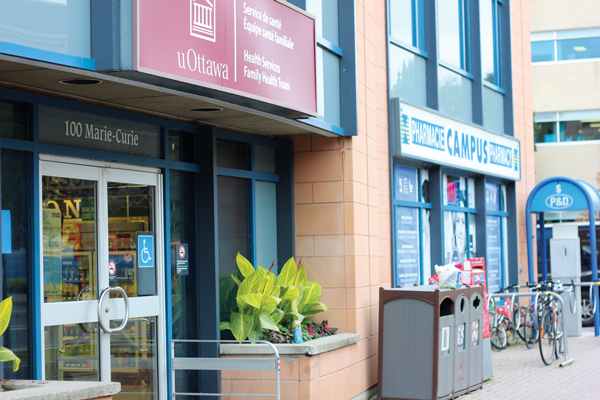U of O hosts annual Islam Awareness Week to help correct misconceptions about Muslim life
Sabrina Nemis | Fulcrum Staff
Photo illustration by Mathias MacPhee
MY CLASSMATE ONCE told me the media has warped her view of Islam so much that when she hears the word “Muslim” she thinks not of herself, her friends, or her family, but of the stereotypical terrorist we’ve all become familiar with in movies and on television.
Islam Awareness Week (IAW), an annual event at the University of Ottawa held this year from Feb. 25 to March 1, is an opportunity to combat this image, to create a space of dialogue between Muslims and non-Muslims, and to bring a community together on campus.
“Islam Awareness Week is here to make people aware of Islam, and the lifestyle of Muslims, and basically just inform people about Islam, answer questions, and correct some misconceptions if they have any,” says Inas Abusheikha, third-year science and education student and coordinator of IAW.
The university centre was replete with booths occupied by volunteers from the Muslim Students Association who were there during Islam Awareness Week to offer information and answer questions from students. As I unwrapped a candy handed to me by a volunteer, another asked me what kinds of misconceptions I have about Islam. It’s a hard question to answer, and I wanted to ask the right question just as badly as she seemed to want to answer it.
Much of the confusion about Islam stems from people’s understanding, or lack thereof, of the way Muslims present themselves through looks and attire.
“So many people commented that they didn’t know I was Muslim because of the way I looked and the way I dress up—it’s totally unlike how Muslims dress up and how should they appear,” said Lubna [last name not provided], a first-year education student who does not wear the hijab.
Abusheikha said this is a common conversation topic for non-Muslims visiting tables during IAW.
“Most of the questions are about appearance,” she said. “So at the women’s table, it’s mostly why do Muslim women wear the hijab or the veil.”
The women’s table offered students the opportunity to try on hijab, enter a contest, and chat with volunteers. Other tables shared information about social justice, the Qur’an, fundamentalism, and theology.
“I honestly think it’s positive. Any space that’s created for dialogue, discussion, and awareness is positive,” said Sabah Esse, a first-year education student who attended IAW.
IAW provides a space on campus for non-Muslims to ask questions about Islam without feeling that they are prying into someone’s personal life and to work against harmful stereotypes ingrained in Western culture.
However, Islam Awareness Week isn’t only for non-Muslim students.
“Our main focus is to inform non-Muslims about Islam, and to raise awareness, but also we are here for Muslim students because we have practising Muslims, we have non-practising Muslims, so we are here for everyone,” said Abusheikha.
“What we basically want people to know from such an event is Islam is a religion of peace—that Muslims are here to serve others. They are not here to harm others,” she continued. “Because that’s the message we get sometimes from the media. We are here just to inform people that we are like any human beings. We have interests like anyone else, and we are here.”





